*Be forewarned this is the first in a series of posts. There is literally NO TRANSITION from one to the next. The original post was about 7000 words and aint no body got time for that. So I chopped it up into readable bites. Literally I decided on what I thought were good points to rest and CUT and PASTE into the next post. So they do stop and start a bit abruptly, but you’re smart and can handle it. The intention is to educate a bit on some science(y) type stuff you may not really understand so that you have the tools to be more mistrustful educated and skeptical about media driven science. So the next time you hear “A new study out today” from some mouthpiece on the boob tube, you don’t go and dump all your coffee down the drain and throw away your steaks. But instead go, “that’s nice, maybe I should look into that more”.
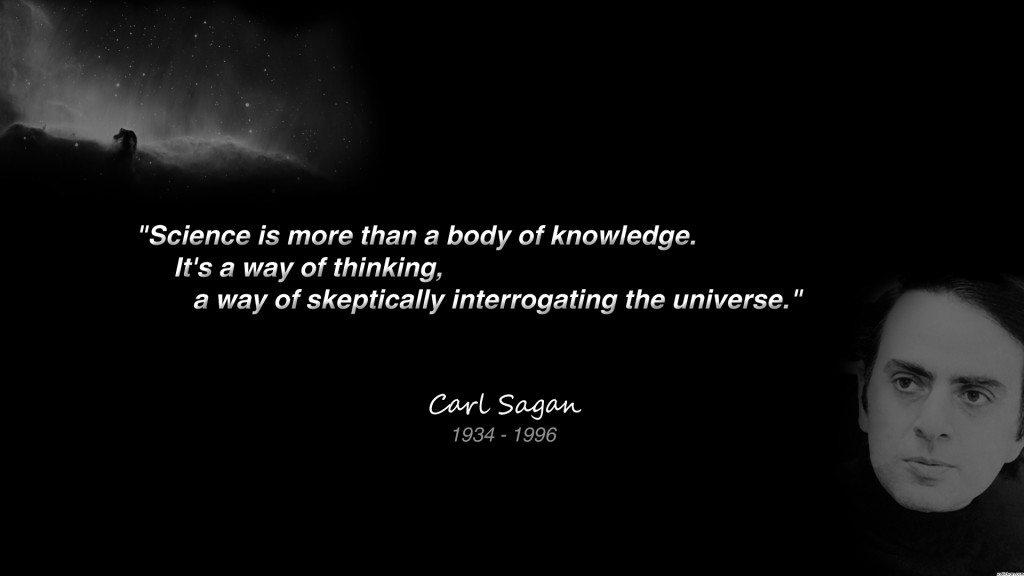
“Extraordinary Claims Require Extraordinary Evidence.” Carl Sagan
Unless that extraordinary claim is draped in science and comes from the mouth of the narrator on Today, The Nightly News, or NPR and begins with the phrase,
“A new study out today says, “
and ends with a 30’s snippet from a “Nutritionist” or “Doctor” who or “Guru” of some sort who generally agrees with the finding of the study, or I should say, agrees with the interpreted finding of the study that was used in the press release in an effort to go viral/ capture attention/ get clicks.
Unfortunately, too often, when we learn about something in this fashion we just believe it.
It WAS on the NEWS…..
We’ll accept something that we’re told on TV from a “expert”, wwithout Having anything beyond VERY BASIC Knowledge In That Field.
But we all know a little bit of many fields of study.
Which leads us to thinking we know more than we do.
We all know:
If I Put My Hand On the Hot Burner…I Will Get Burned
Just based off of this example we ALL have a basic understanding of thermodynamics, energy transfer (conduction), and injury, inflammation, tissue repair etc.
But do we REALLY know much more than
Hot Burner = Burned Hand= Ouch = Time to Heal?
And this, my friends is why we’re so damn confused about Diet and Exercise.
“The Problem With Nutritional Science is Everybody Eats”-Layne Norton, Ph.D
Everyone eats and everyone should exercise.
But if you listened to one month of the news you wouldn’t have a clue about what to eat and how to exercise.
You would probably think that every damn thing you do is inherently dangerous.
Is broccoli good for you, or does it give you cancer?
High intensity training is good for the heart, unless it gives you a heart attack.
Red Meat, Saturated Fat and Butter… The Path To Heart Disease and Early Death.
Barefoot running, you should do bare foot running…..you don’t need that Achilles tendon anyway.
But Apple Cider Vinegar will cure what ails ya?
See my point?
And it doesn’t help that we’re hardwired for fear,
“Our brains are hard-wired to feel more and think less. And that doesn’t make sense, because relying more on our feelings than the facts means that we sometimes end up more afraid of lesser risks, and less afraid of bigger ones”– Big Think
and suckers for a quick fix,
“People love tips. A list of tips is the easiest way to make the front page of Digg, attract dozens of back links, and acquire hordes of RSS subscribers. The tips don’t even need to be new or insightful, they just need to make sense and cover an interesting topic. Who doesn’t enjoy useful information in an easily digestible format?
The problem with tips is that they’re too delicious. People become obsessed with prepackaged information nuggets and stop thinking for themselves. When an article focuses on theory, no matter how brilliant it is, people complain that the information isn’t “useful”. The definition of “useful” has become so narrow that it only includes information that applies directly to a concrete problem. This reluctance to master and apply conceptual knowledge is a symptom of intellectual laziness.
The internet, despite it’s advantages, promotes intellectual laziness. Information is everywhere, making it highly disposable. Tips are appealing because they can be quickly absorbed and applied without any independent thought. The downside is that conceptual information is neglected. When understanding a concept requires effort, we usually abandon it in favor of practical tips.”- Pick the Brain
Here a quick list of “Truths” I’ve been asked about/ told/ preached to for the last decade that I can say with certainty are 100% media driven and representative of the,
“I heard such and such on the news, radio, internet guru and it makes “sense”, there is a grain of truth/ logic to it” phenomena.
Things that might sound good/ right/ logical in the moment and are sometimes supported/ perpetuated by fake news TV “science” but don’t hold up against the available evidence.
Too Much Protein Damages the Kidneys:
Claim:
Excess (how much excess is excess is up for debate I guess, but usually above RDA) protein in the diet will damage your kidneys.
How this came to be:
There are products of protein metabolism and kidney function that become elevated/ change on “high” protein diets: <—-before we move on lets remember the definition of “high protein diet” pretty much is unestablished. It’s different study to study soooo we aint always comparing apples to apples here.
“Perhaps the most consistently cited reference with regard to the potentially harmful effects of dietary protein intake on renal function is that of Brenner et al. [3]. In brief, the Brenner Hypothesis states that situations associated with increased glomerular filtration and glomerular pressure cause renal injury, ultimately compromise renal function, and potentially increase the risk for or progression of renal disease. Brenner proposed that habitual consumption of excessive dietary protein negatively impacted kidney function by a sustained increased in glomerular pressure andrenal hyperfiltration”- Martin, Armstrong, Rodriguez
So obviously, high protein diets CAUSE renal (kidney) failure, right?
Makes sense, but it makes sense in the way hamburgers come from McDonalds.
If you take something that is ALREADY BROKEN and stress it more, it breaks faster.
But what if it ain’t broke?
“Although excessive protein intake remains a health concern in individuals with pre-existing renal disease, the literature lacks significant research demonstrating a link between protein intake and the initiation or progression of renal disease in healthy individuals. More importantly, evidence suggests that protein-induced changes in renal function are likely a normal adaptive mechanism well within the functional limits of a healthy kidney”- Martin, Armstrong, Rodriguez
Ok, but that’s an older paper, maybe we have new knowledge?
Published August 2017:
“Few randomized trials exist with an observation time greater than 6 months, and most of these were conducted in patients with preexisting diseases that dispose to CKD. Results conflict and do not allow any conclusion about kidney-damaging effects of long -term high-protein intake.” – Kamper, Strandgaard
In fairness, the above paper did advise using caution and having renal function tested before, during and after embarking on a long-term, “high protein diet” because in the end, we don’t really have proof so much as evidence that supports a position.
Its really tough (actually, its impossible) to say proof or prove in science.
Which is why we say it’s been “shown”,
“all scientific knowledge is tentative and provisional, and nothing is final. There is no such thing as final proven knowledge in science. The currently accepted theory of a phenomenon is simply the best explanation for it among all available alternatives. Its status as the accepted theory is contingent on what other theories are available and might suddenly change tomorrow if there appears a better theory or new evidence that might challenge the accepted theory. No knowledge or theory (which embodies scientific knowledge) is final.” – Psychology Today
This is why real, working scientists, don’t use the term “Settled Science” very often, but pundits and talking heads throw it around without a second thought.
“The problem is that science is both dogmatic and skeptical—or rather, neither fully dogmatic nor fully skeptical—a bewildering characteristic that allows science to advance. But the disfiguring lenses of popular journalism and political debate transform this healthy tension into an untenable disjunction. On the one hand, we are told: “The science is settled!” Question not. On the other: “Science is never settled!” Question all. Depending on the issue, say, climate change or GMOs, politicians and pundits on the left or right will opportunistically appeal to one or the other”.- Real Clear Science
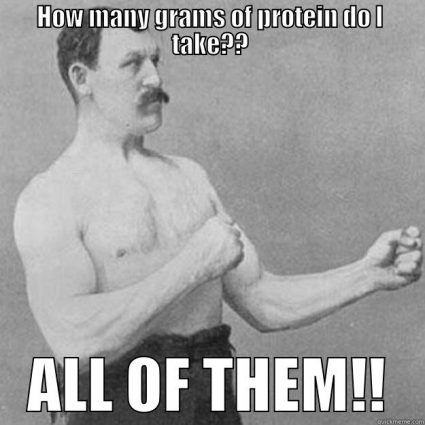
So Maybe we Should Just be Protective and go Low Protein all the Time
Why temp fate?
“Low protein intake predicted higher mortality in the whole population and lower incidence of eGFR decline only in subgroup with reduced kidney function.” – a whole bunch of dudes, just click here
Ohhh, so, that might not work.
If you’re active (or even alive for that matter) you need more protein than the RDA to function optimally.
“It is important to note that the quantity of protein that should be consumed to achieve optimal muscle and bone health seems to be different from the requirement to prevent a deficiency. In fact, dietary proteins have many other functions besides synthesizing body proteins. They play an important role in satiety, cellular signaling, and thermogenic and glycemic regulation in the body, and, interestingly, it is when protein intake is above the RDI when these metabolic processes are most evident (8). The Institute of Medicine has not established a protein tolerable upper intake level because of insufficient scientific evidence. However, the risk of adverse effects for the healthy population at the upper level seems to be very low (9). At any rate, the AMDR upper value of 35% does not match the RDI of 0.8 g/(kg ⋅ d) given that, if a 70-kg man consumed 2500 kcal/d and 35% of that came from protein, he would be eating ∼219 g protein/d, or ∼3.0 g/(kg ⋅ d), which is almost 4 times the RDI for protein. Thus, a moderate consumption of 1.5 g/(kg ⋅ d) can be included in the acceptable protein intake range for most individuals.”- Marta Cuenca-Sánchez, Diana Navas-Carrillo, Esteban Orenes-Piñero
“for healthy kidney patients, in view of the findings of several studies, the consumption of a high-protein diet appears to be more advantageous than deleterious”– Marta Cuenca-Sánchez, Diana Navas-Carrillo, Esteban Orenes-Piñero
My Take:
Don’t be a goober.
Lots of veggies, fruits and protein(s).
Don’t be afraid of the steak, there’s really,
No evidence that protein is dangerous for those with healthy kidneys.
Most things we eat are actually really safe, except those “artificial” things.
Artificial flavors, colors, and mostly sweeteners, those can’t be any good for you.
Well, first things first, just because something is natural or unnatural doesn’t have anything to do with its safety.
This is a Logical Fallacy
Appeal To Nature:
the belief or suggestion that “natural” is always better than “unnatural.” Many people adopt this as a default belief. It is the belief that is what is natural must be good (or any other positive, evaluative judgment) and that which is unnatural must be bad (or any other negative, evaluative judgment).- logicallyfallacious
Just because something is from nature doesn’t make it safe.
The general public is frequently assailed by news reports concerning dangerous, toxic chemicals. The public is also led to believe that only natural substances are safe and that synthetic additives and agrochemical residues are dangerous. Such reports rarely present balanced analyses of the science underlying these complex issues.
This book attempts to probe some of these issues and to put them in a more balanced perspective. The underlying origins and degree of hazards are analyzed. Two themes emerge from this analysis: (a) nothing is absolutely safe; both natural and artificial chemicals can be dangerous; and (b) the safety and/or effectiveness of any particular substance varies with its concentration and with which part of the body is exposed. For example, an additive in many ice creams could give you emphysema if it reached your lungs, but it is safe to ingest.- Stanford
But We’re Always Hearing:
Artificial Sweeteners MAKE You Gain Weight, Cause Dementia, They’re The Devil
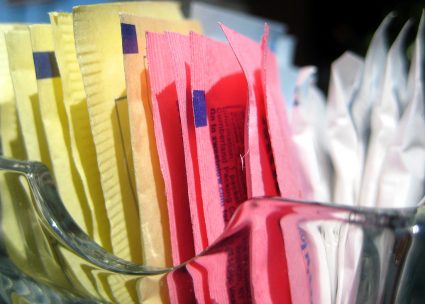
How This Came to Be:
Saccharin in Rats:
There was a series of studies conducted in the mid to late 70’s that came to a pretty solid consensus,
Saccharin is carcinogenic for the urinary bladder in rats and mice, and most likely is carcinogenic in human beings.
How’d we get here?
“In 1977, a study published in Science found an association between saccharin and bladder cancer in rats,[30] spurring the FDA to ban saccharin as well. The FDA lifted the ban, however, after thousands of people wrote letters of protest. But until concerns about saccharin could be resolved, the FDA maintained that all foods containing the sweetener must have a warning label stating that “Use of this product may be hazardous to your health. This product contains saccharin, which has been determined to cause cancer in laboratory animals. “Subsequent studies in rats continued to show an elevated risk for bladder cancer after the animals consumed very high doses of the sugar substitute”- Medscape
But see that’s the fun thing about science.
Words have MEANINGS.
and the word association (bolded and highlighted in the above quotation), DOES NOT mean cause.
It means these two states or outcomes appear to have a relationship, but….we really don’t know.
“Correlation is a statistical measure (expressed as a number) that describes the size and direction of a relationship between two or more variables. A correlation between variables, however, does not automatically mean that the change in one variable is the cause of the change in the values of the other variable.
Causation indicates that one event is the result of the occurrence of the other event; i.e. there is a causal relationship between the two events. This is also referred to as cause and effect.” -abs.gov
How about we look into that association, set up an actual experiment, and see if the relationship is actually causal, as in there is a…
Mechanism Of Action:
“Mechanism of action describes the process by which a molecule, such as a drug, functions to produce a pharmacological effect. A drug’s mechanism of action may refer to its effects on a biological readout such as cell growth, or its interaction and modulation of its direct biomolecular target, for example a protein or nucleic acid.”- Nature.com
The MOA is HOW something happens.
No MOA present, no causal relationship. <—-there may be a causal relationship and we just haven’t discovered the MOA, yet.
No causation….
No x=y
Here’s the thing with the word MAKE.
Make = Causation, at least to me it implies that.
But the Rats DID Get Cancer:
And They Found out Later why the Rats got Cancer, the MOA:
“experts soon found that the mechanism that led to cancers in rats was irrelevant in humans. Specifically, when consumed in high doses, researchers discovered that saccharin changes the composition of rat urine, creating a precipitate. The precipitate can damage the cells lining the bladder, which in turn can promote tumor growth when the cells regenerate. This mechanism, however, is unique to rats.“- Medscape
But that didn’t really matter, the cat was out of the bag and the fear had set in.
“Although there has been a lot of negative press about artificial sweeteners, there is no evidence that artificial sweeteners cause cancer in humans,” said Christine Zoumas, MS, RD, project manager of the Diet and Physical Activity Shared Resource at the University of California, San Diego, Moores Cancer Center.
And once the “bad actor” is identified, fear sets in, and you gotta throw that snowball <—-that’s a metaphor for finding someone or something to blame
Come back next week for part two, and then the week after for part three.

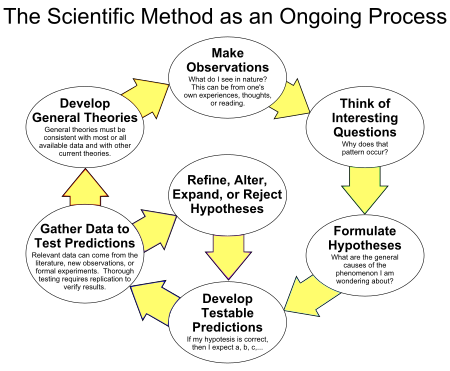
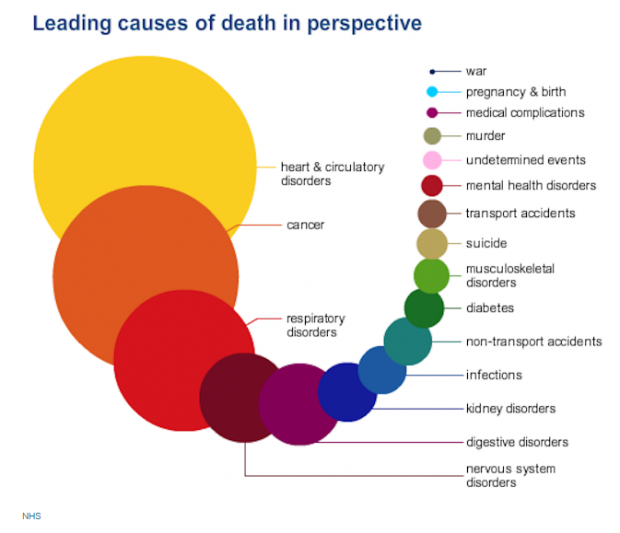

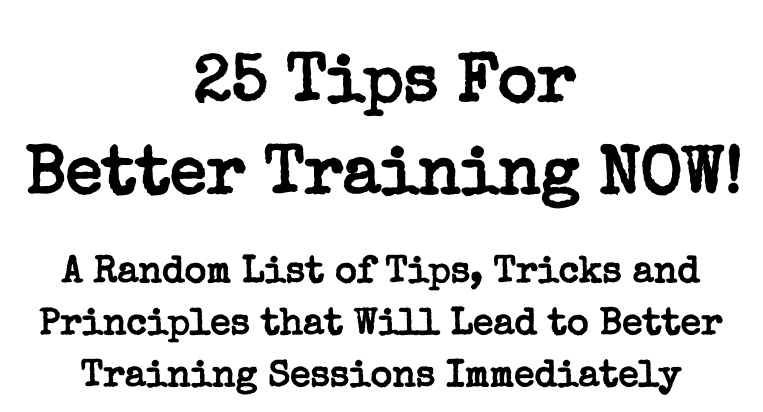
Thank you, Roy. This is a critical message (pun intended) although I expect most of your readers already have a healthy skepticism. For years, when I teach Scientific Presentations, I emphasize that researchers’ work can and will be picked up by the lay press and distorted, particularly if they study coffee, red wine or chocolate. Rock on! –Donna
BLAST FROM THE PAST….
I’m going to assume you’re still working out as hard and regularly as ever…You’d be surprised. I’ve been away from Hopkins for a while now and most of my clients are in business. They’ve got so much other stuff going on that they really don’t have the time to go much beyond the snippets they get from the media and rely on me (cause I’m a giant nerd) to filter the stuff out and 99% of the time I end up telling them, “Don’t worry about it. You don’t need to sweat about that at all”. The vast majority of them live pretty righteous lifestyles. Exercise, eat healthy, go to the doctor, etc and worrying about having a diet coke with lunch a few times a week or eating a 5 guys hamburger on a random Saturday is literally of NO CONSEQUENSE to their health. It’s like pissing in the ocean and worrying about the rising tide…But if you watch the news you’d think there was impending doom around every corner.
Hope everything is great with you….Thanks for reading Donna.